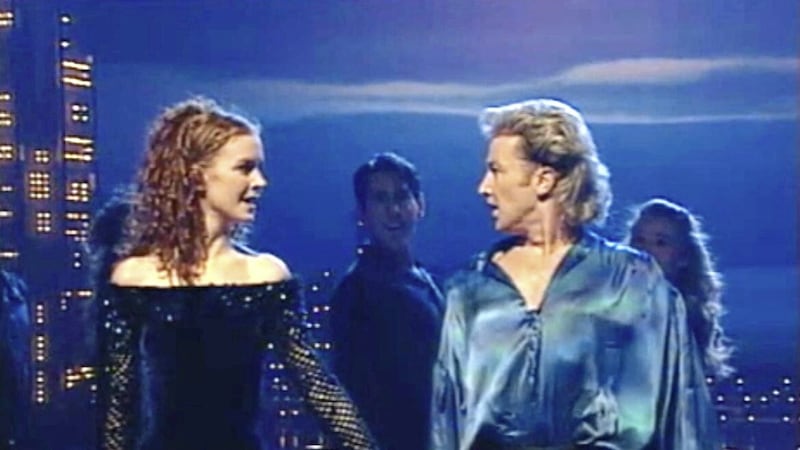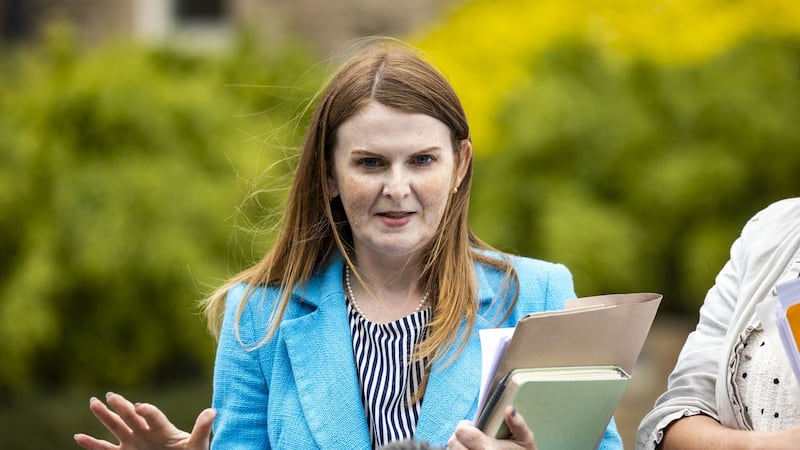I will admit to having attended the Eurovision Song Contest twice – in a professional capacity of course.
The first was 1994 when Riverdance was the interval act. Such was the shock at what we witnessed when Michael Flatley and Jean Butler took to the stage, that almost all other memories of the evening were wiped out.
Flatley’s approach to Irish dancing seemed almost sacrilegious. The audience was thrilled and aghast at the same time. The President was there – Mary Robinson – and it seemed almost to be an affront to Irish culture and tradition. Robinson took it in her stride. We all took it to our hearts.
When Flatley and Butler finished, the crowd was on its feet, and the song contest was eclipsed. Having disguised my weekend plans by telling friends I was going to a contemporary music event, I lost no time afterwards in boasting ‘I was there’.
That night, everything changed, changed utterly. A terrible beauty was born. Riverdance became a juggernaut that swept the globe. Irish traditional dance was never quite the same, though interestingly this new approach to choreography did not destroy the foundations it was built on.
The art form was reinvigorated, and the strands from old-style sean nós through to Flatley’s Broadway-style creation exist together. My sister, who is a sean nós teacher, would not forgive me if I did not urge you here to give it a go.
Apart from the social benefits, there are health benefits too – and dance is now an accepted therapy for those with dementia and motor diseases such as Parkinson’s.
Anyway, I digress. The second time I was at Eurovision was in 1997. Ronan Keating was one of the presenters, and Norway and Portugal were each awarded the much sought-after nul points.
1997 is significant for another reason too. Katrina and the Waves won it for Royaume-Uni. It was the last time the country won, ushering in a quarter of a century of paranoia over political voting, and fuelling the feeling of rejection that helped nudge Brexit over the line.
If only Jemini (nul points 2003) had sung in tune, if only Engelbert Humperdink (not the opera composer) had scored more than 12 points in 2012, if only Electro Velvet (remember them, no me neither) hadn’t bombed in 2015…
In the 90s, Eurovision was regarded as a bit of a joke, particularly by the BBC’s Limerick-born resident commentator Terry Wogan. In one-put-down he said: “Who knows what hellish future lies ahead? Actually I do because I’ve seen the rehearsals.”
(As an aside, what is it about the BBC that it forces Irish presenters to champion British talent taking on the world? Colonialism or what?)
But Eurovision is a joke no more – yes it is still frivolous, over the top, and more camp than an entire series of RuPaul’s Drag Race – but it has become one of those events which is immeasurably greater than the sum of its parts.
It has succeeded because it has embraced the joke. It knows it is not about the best ‘song’, it is about finding a common thread that unites Muslims and Jews, Vikings and Celts, Latins and Aussies (don’t ask).
That it does so in a world that is increasingly riven with division (and the shadow of Ukraine very much hangs over this year’s contest) is a remarkable achievement which should not be knocked.
Finally, a word about another anachronous event that attempted to bring together people of all faiths and none. There is, of course, little justification for monarchy, and even pared down, last Saturday’s coronation ceremony was at odds with the values of this modern age.
The oath affirming the Protestant succession is nauseous. But they did what they could to draw attention away from it. The presence of the Pope’s right-hand man was welcome, as was the central role given to the Cardinal Archbishop of Westminster. A relic of the ‘True Cross’, in the Cross of Wales, a gift from the Pope, led the procession.
For me two things stood out. The boy chorister quizzing the king about what he was there for. “I come not to be served but to serve,” was his reply.
The second thing was the fact that while the representatives of nationalist Ireland acted with dignity and respect; it was the so-called loyalist MLA Jim Allister who disgraced the event with his mealy-mouthed politicking.
To him I dedicate “Diva”, Dana International’s winning song the last time the UK hosted Eurovision.









